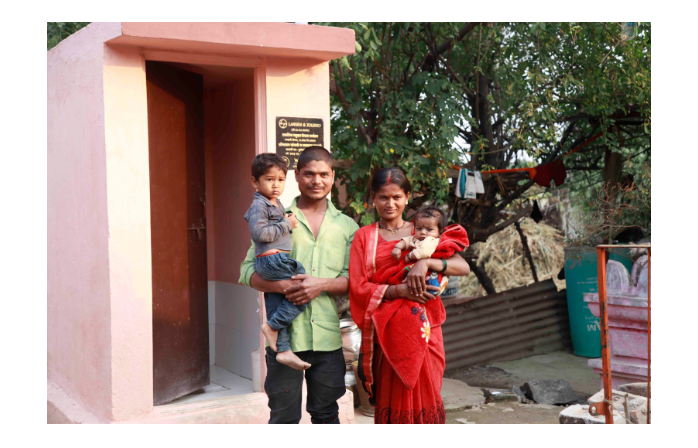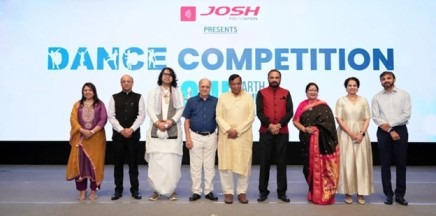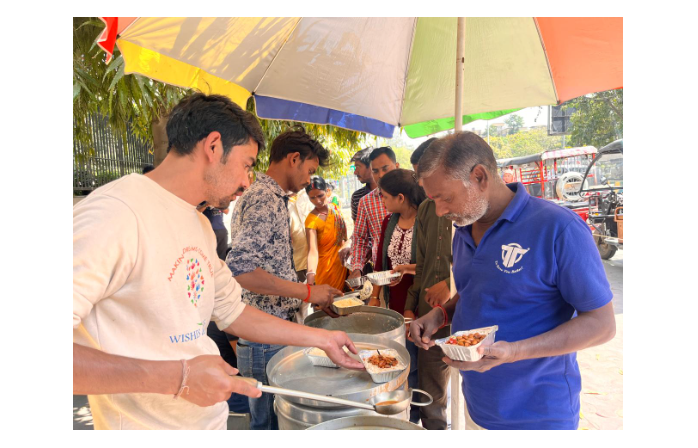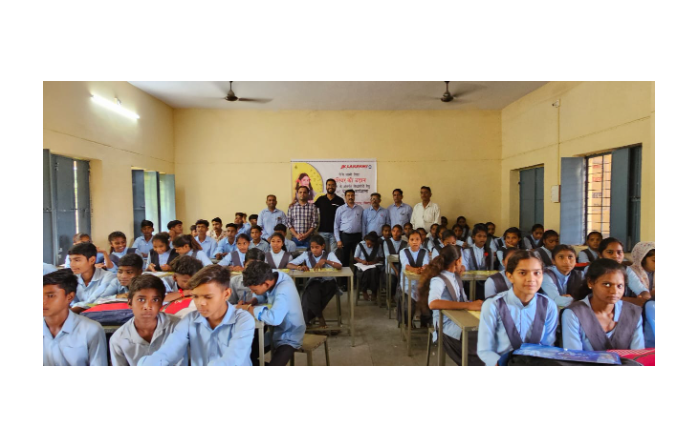Meet Deepanjali Sahu: India’s 19-Year-Old Environmental Advocate Comparable to Greta Thunberg
By- NGOBOX
August 23, 2024

NGOBOX
In the remote village of Nuapada district, Odisha, children face overwhelming struggles every day. They lack access to basic education, grapple with issues of menstrual hygiene, and are often trapped in the cycles of child labor and child marriage. These hardships have long been a part of their lives, creating barriers to growth and well-being.
Amid these challenges, a 19-year-old named Deepanjali Sahu emerged as a beacon of hope. Determined to bring about change, she has become a young leader, tirelessly working to improve the lives of children and women in her community.
Empowering Communities Through Awareness and Education
The COVID-19 pandemic disrupted lives worldwide, and rural India was no exception. In Nuapada, it exposed the vulnerabilities of children and women, pushing them into even tougher situations. With schools closed, many children, especially girls, lost access to education. Instead, they were often pulled into domestic work or forced into early marriages. The already fragile social structure, weakened by poverty and lack of resources, faced further strain.
Amid these challenges, a 19-year-old youth leader from the village stepped up to make a difference. She understood that education and awareness were crucial for change, so she began launching awareness campaigns in her village and nearby areas.
One of the most urgent issues Deepanjali tackled was child marriage. Even though it\'s illegal, child marriage is still common in many rural areas, including Odisha. The pandemic worsened this problem, as struggling families saw early marriage as a way to ease their financial burdens. The youth leader knew that child marriage not only takes away a girl\'s childhood but also keeps families trapped in poverty.
To fight this, she organized rallies, created posters, and went door-to-door to educate families about the harmful effects of child marriage. Although her efforts were initially met with resistance, she gradually began to change people\'s attitudes, encouraging more families to keep their daughters in school and delaying marriage.
Another critical issue she focused on was menstrual hygiene, a topic often surrounded by stigma and misinformation. In rural areas, menstruation is still seen as a taboo subject, leading to poor hygiene practices among women and girls. This not only affects their health but also limits their participation in school and social activities.
Recognizing the need for change, the youth leader worked to break the silence around menstrual health. She organized workshops where women and girls could openly discuss the topic. She also distributed educational materials and sanitary products, ensuring they had access to the resources needed for proper hygiene. Her efforts not only improved the health and well-being of women in her community but also empowered them to take control of their lives.
Advocating for Menstrual Hygiene During the Pandemic
With lockdowns in place, many women in Nuapada found themselves without access to sanitary products, forcing them to use unsafe alternatives that posed serious health risks.
Recognizing the urgency of the situation, Deepanjali took swift action. She reached out to local authorities, highlighting the dire need for sanitary products. Her efforts paid off when the District Collector responded by arranging the distribution of these products across multiple panchayats.
But the initiative didn’t stop at just providing sanitary products. Deepanjali and her team went door-to-door, not only distributing the products but also educating women and girls on how to use them properly.
They took the opportunity to dispel common myths about menstruation, encouraging healthier practices. This effort not only addressed the immediate health concerns but also empowered women with the knowledge and resources to maintain good menstrual hygiene long-term.
Understanding that lasting change requires community involvement, Deepanjali also organized meetings where men and women could openly discuss menstrual hygiene. These gatherings played a crucial role in breaking down the stigma surrounding menstruation.
By involving men in these conversations, she ensured that menstrual health became a shared responsibility, creating a more supportive environment for everyone in the community.
Promoting Climate Action and Environmental Responsibility
While addressing immediate social issues, the youth leader also understood the need for long-term sustainability, especially concerning climate change. Her village in Odisha experienced the devastating effects of Cyclone Fani in 2019, which destroyed homes and livelihoods, leaving a lasting impact on the community. This event was a turning point for her, awakening the need for climate action.
Determined to make a difference, Deepanjali began educating her community about environmental responsibility. She organized tree-planting drives to combat deforestation and promote a greener environment.
She also led initiatives on waste segregation, teaching families how to separate organic waste from non-biodegradable materials, and advocated for reducing plastic use. Her goal was to foster a culture of sustainability in her village, where everyone recognized the importance of protecting the environment.
Her climate efforts extended beyond her village, as she reached out to neighboring communities, sharing her knowledge and encouraging others to take action. Deepanjali’s work showed the connection between social and environmental issues, demonstrating how improving one area could positively affect others.
Impact Created
The impact of Deepanjali\'s efforts is clearly visible in the positive changes within her community. Through her awareness campaigns, she has educated families about the dangers of child marriage, leading to a noticeable decline in the practice.
Deepanjali’s focus on menstrual hygiene has empowered women and girls to take charge of their health, breaking the long-standing silence and stigma around the issue. The sanitary products she distributed during the pandemic not only addressed an urgent need but also equipped women with the tools and knowledge to maintain proper hygiene over time.
Her climate action initiatives have also made a difference. Tree-planting drives have led to a greener environment, while waste segregation efforts have resulted in cleaner, healthier communities.
Deepanjali’s work has inspired others in the community, especially young women, to take on leadership roles and actively participate in social and environmental projects. These changes, though gradual, are steady and sustainable, offering hope for a brighter future for the entire community.
Way Forward
The story of this young leader from a remote village in Odisha shows the impact of grassroots leadership. It highlights the importance of empowering young people to lead and make positive changes in their communities.
To build on this success, it\'s crucial to support and expand grassroots initiatives. Investing in both formal and informal education can equip young people with the skills and knowledge needed for leadership. Programs that teach life skills, leadership, and social awareness can help more young people take on leadership roles and tackle community challenges.
Providing resources and support for young leaders is also essential to keep their efforts going. Creating platforms for them to share their experiences and collaborate can help spread successful ideas and build a network of changemakers.
Deepanjali\'s work reminds us that change often starts at the grassroots level. By supporting and empowering these individuals, we can spark widespread positive change, leading to a more equitable and sustainable world.
Source

India's largest platform for NGOs and social sector professionals. Bringing together jobs, grants, fellowships and more.
© Renalysis Consultants Pvt Ltd



.jpg)








